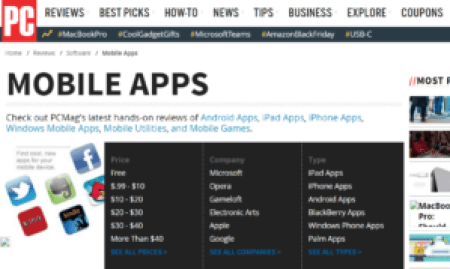A Treasure Trove of Data
Amidst the all-caps rants and troll infested app store reviews is a mine full of market research data. A lot of app publishers and marketers actually know about the potential of app reviews. It is not only important in the context of the app the reviews are for, but also for future app development endeavors. But in order to harness the potential of app store reviews, a process called opinion mining or sentiment analysis is necessary.
The terms opinion mining and sentiment analysis are often used in different contexts. But they both used to describe a process of systematically extracting subjective information from a body of text. Nowadays, there’s a niche for opinion mining in social media networks. Twitter, for example, uses opinion mining to determine people’s reactions on a trending topic. These reactions can be classified into three polarity aspect: positive, negative, and neutral.
In the context of an app store review, opinion mining seems the straightforward analysis of users’ satisfaction. If a majority of the reviews is positive, then great, right? If it’s negative, what else can we do about it? But most of the time, these users actually want to tell you what they want, not only with your app but also in apps with the same functionality in general.
Why Bother with Opinion Mining?
Aside from the aggregation of important feedback, opinion mining can also benefit marketers in different ways:
- Opinion mining is helpful in the early stages of app development, especially as you are building the app’s concept. It can give you insights on the market or niche of your app.
- Digging deeper, you can find information on specific features or functionality that don’t work for your target audience. That is even before you get into the beta-testing phase!
- You can evaluate the cause of both your success and failure. You can actually use app store reviews as some sort of benchmark that can give a picture of how a successful app should look like in the perspective of users. For example, app store reviews and ratings are important considerations in downloading an app. For every negative review, the app’s chances of download decrease. Also, a game app with a lot of downloads doesn’t necessarily have satisfied users. This can result in poor retention and therefore, low revenue in the long run.
- You can generate previously overlooked keywords using app store reviews. You can find targeted keywords well-hidden within positive reviews. There’s also the added bonus of these keywords having less competition.
Tools for Opinion Mining
One basic strategy in opinion mining is to group app store reviews according to sentiments. These sentiments are basically keywords that fall under the category “unambiguous affect words”. Words like “happy”, “sad”, and “bored” fall under this category. This approach to opinion mining or sentiment analysis is called a “knowledge-based technique”.
More advanced knowledge-based techniques are not easy to perform and evaluate, though. You can trawl for these keywords manually with the use of filters. This technique can take some time and effort so it’s not practical to use in analyzing real-time sentiment.
There is also a statistical technique that uses machine learning, specifically deep parsing of texts. Automated tools offer more accurate results and more versatile processes. You can create your own tool which can cost a lot of time and money. There’s also App Annie where you can export a spreadsheet of reviews from a specific date range, app version, and country. There are also opinion mining tools for a fee. Most of these tools are geared towards social marketing, though.
You can, of course, use a hybrid technique that combines both the knowledge-based and statistical techniques.












